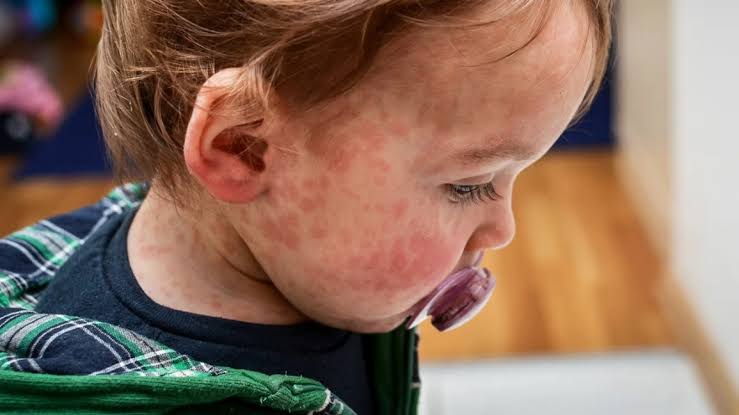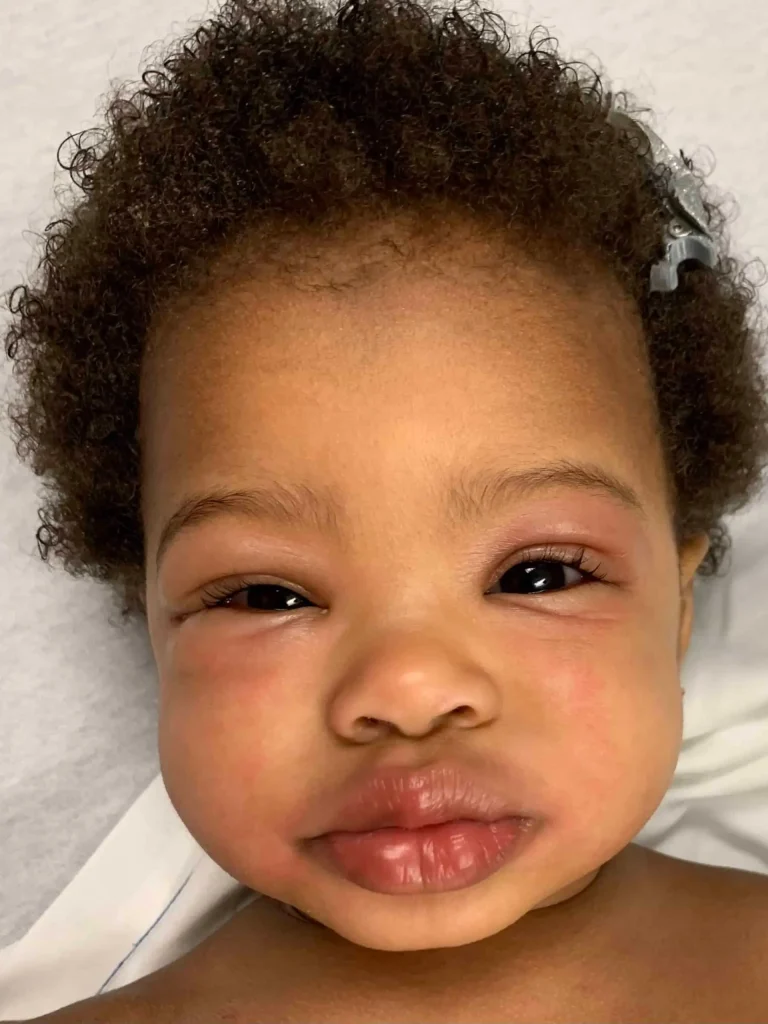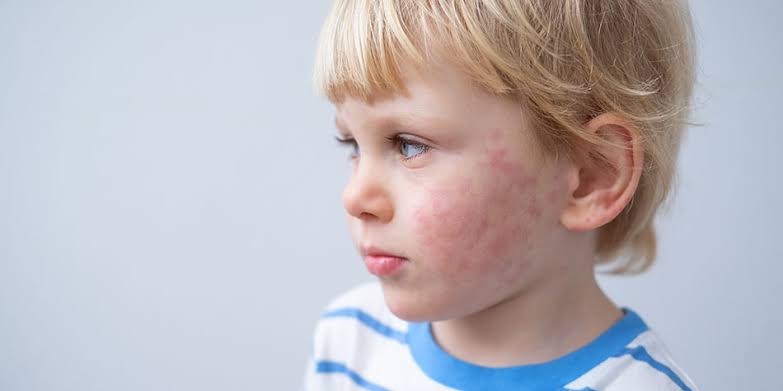This content is for informational and educational purposes only. Always consult a qualified healthcare provider.
Last Updated on October 2, 2024 by Pen Pixel
Your baby’s skin suddenly turned red and rashy, or they start wheezing, their body gets covered in hives, or their face swells up like a balloon. What’s happening? It’s probably an allergic reaction. Simple as that.
📋 Table of Contents
The Key Takeaway.
If you think your baby’s having an allergic reaction, run cold water on the rash or hives, or if you can, grab an over-the-counter oral antihistamine from a pharmacy and give your baby the right dose. But parents, seriously, don’t try to handle this at home. Get your baby to the hospital ASAP.
Allergic Reaction In Babies.


Your baby can react to all sorts of things. The food, formula, even the detergent you use. If your baby’s skin suddenly turns red and rashy, they start wheezing, get covered in hives, or their face swells up, it’s probably an allergic reaction.
Parenthood is full of surprises, and not all of them are fun. Allergic reactions in babies can be scary and misinterpreted. But knowing the signs means you can act fast to keep your baby safe.
So, stay calm, you’ve got this.
How To Know If Your Baby Is Having An Allergic Reaction?


Is your baby suddenly…
- Itching and scratching like they’re trying to shed their skin?
- Breaking out in hives like they just ran through a field of poison ivy?
- Coughing and wheezing like they’ve been inhaling dust?
- Vomiting and having diarrhea?
If you answered yes to any of these, your baby is most likely having an allergic reaction.
What Do You Do?
Go To The Hospital.
When your baby shows signs of an allergic reaction, the first and most important thing to do is get them to the hospital ASAP. Allergic reactions can be unpredictable and dangerous, so don’t take a “wait and see” approach. A doctor will be able to check your baby’s symptoms and give the needed treatments to relieve their discomfort.
Use Cold Water.
While you’re waiting for medical help, run cold water over the affected area for a few minutes. Why? To reduce inflammation and provide some relief from the itching and discomfort. Just don’t use ice or very cold water, it’d just cause more irritation.
This is just a temporary fix though. Get your baby to the hospital as soon as possible for proper treatment.
Oral Antihistamine.
If the hospital isn’t easily accessible, head to a pharmacy. It’s not ideal to treat an allergic reaction without professional help, but you can give your baby an oral antihistamine (like Benadryl). Do not exceed the recommended dosage.
This is also a temporary fix. Your baby still needs professional medical help.
Common Foods Babies Are Allergic To.
- Cow milk.
- Eggs (because of it’s protein content).
- Peanuts (one of the most common food allergies in children).
- Nuts (Almonds, cashews, walnuts, and other tree nuts can also trigger allergic reactions).
- Fish (any type of fish).
- Wheat (it’s not the wheat, it’s the gluten).
- Corn.
More..
- Every baby is different, and some may be allergic to foods that aren’t on the list above.
- And if you’re breastfeeding, you need to adjust your diet if your baby has a food allergy. Ask your doctor about any dietary changes you need to make.
- If your baby is allergic to something, please avoid that food in the future. Don’t test waters. You don’t need to know if they’ve outgrown it or not. And be sure to read food labels carefully and ask about ingredients in restaurants.
- If your baby has a food allergy, they may also be at risk for asthma or eczema. Find out if your baby has them.

